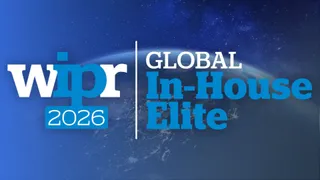
Doubling up: biotech patent examination in Brazil
The merging of intellectual property law and biotechnology represents the joining of old law with new technology. In theory, statutes designed to facilitate creation of unforeseen technologies and reward inventors for their creativity should blend easily with the inventions of biotechnology. Although IP laws have fostered research and development in biotechnology, new legal and social questions have also arisen.
Already registered?
Login to your account
If you don't have a login or your access has expired, you will need to purchase a subscription to gain access to this article, including all our online content.
For more information on individual annual subscriptions for full paid access and corporate subscription options please contact us.
To request a FREE 2-week trial subscription, please signup.
NOTE - this can take up to 48hrs to be approved.
For multi-user price options, or to check if your company has an existing subscription that we can add you to for FREE, please email Adrian Tapping at atapping@newtonmedia.co.uk

